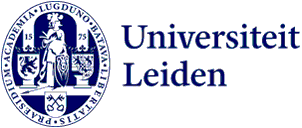
Academic Director Douglas Berger: ‘I want to help my fellow philosophers flourish’
The Institute for Philosophy has a new Academic Director: on 1 February, James McAllister was succeeded by Douglas Berger. We asked him about his plans.

The position of Academic Director is not unfamiliar to Berger, as he fulfilled a similar role at Southern Illinois University in the United States a few years ago. ‘It’s certainly a challenging task,’ he says, ‘but this position allows me to help my colleagues flourish in their careers. I want to draw on their vision of the Institute’s future, if only because their different specialisations mean that their ambitions and dreams are different from mine.’
Growth as both strength and pitfall
Berger therefore intends to mainly spend his first year as Academic Director collecting input from his colleagues. This will initially be used to produce a strategic plan for the Institute, in which growth will be a key focus. Berger: ‘I was amazed when I arrived in Leiden. Whereas in Illinois we were struggling with budgets and small student numbers, Leiden was setting up the bachelor’s programme in Global and Comparative Perspectives. This is one reason why the number of students has increased by sixty per cent in recent years. We want to sustain that growth. I hope we can create even more an environment where it’s easy for scholars to collaborate, both within and outside of their own Institute.’
But rapid growth also involves risks. ‘Student numbers can fall and budgets can be cut,’ says Berger. ‘Then you need to be in a strong position as an Institute. Collaboration can help with this, too. The more we combine our sources and the more people collaborate, the more creative and versatile the programme becomes. This helps keep it attractive.’
‘The Leiden programme is unique’
To emphasise its attractiveness, the Institute will also have an outward-looking approach. ‘I want to continue with the ambition to establish Leiden as the leading centre for intercultural philosophy. The previous directors and University management have made a fantastic start by setting up a new programme. I think it’s great to see how it’s developing into something very special. It’s the only programme with an intercultural orientation in the Netherlands, and there’s not much like it in the rest of Europe either. Over the next four years, I want to help it grow as much as possible, together with the Institute’s other research fields.’
